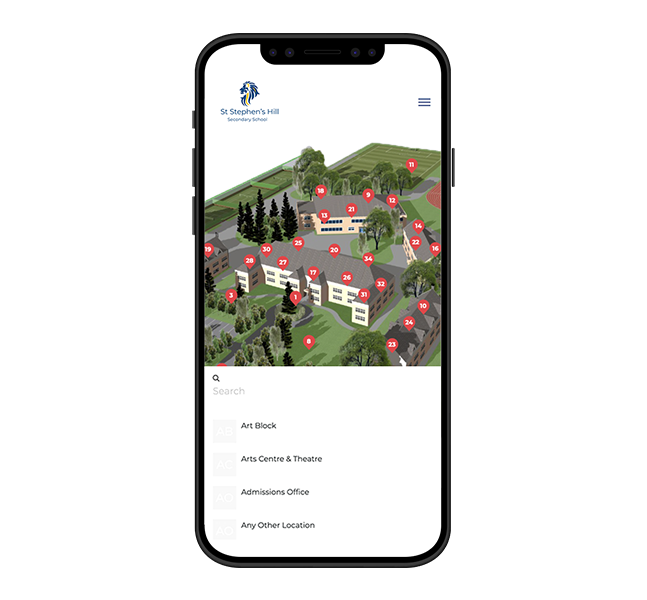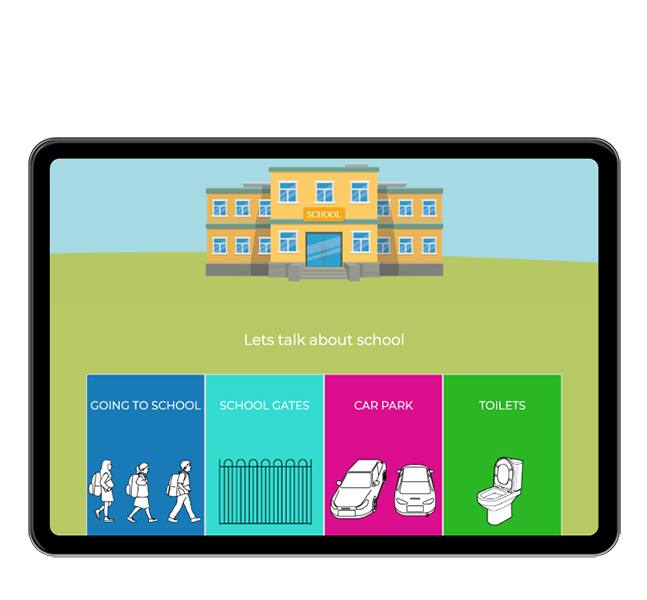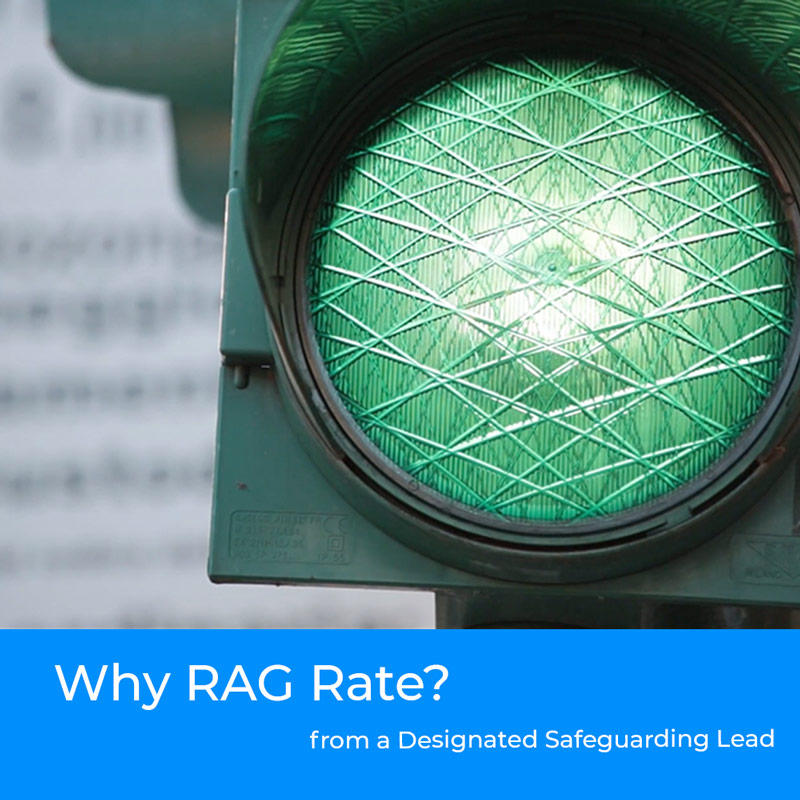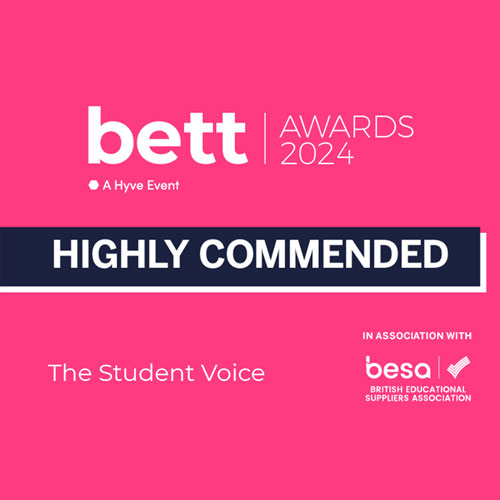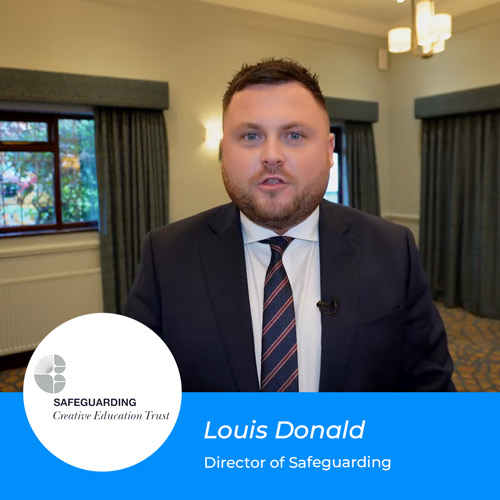Independent Schools Inspectorate Framework 2023
Pupil voice and the opportunity to enhance the way in which we safeguard young people and children
The Independent Schools Inspectorate framework 2023 now challenges schools to develop a robust and conscious contextual approach to safeguarding.
The new ISI inspection framework 2023 seeks to place the voice of pupils and pupil wellbeing at the heart of the inspection framework. For independent schools, this essentially means, that schools need to actively seek to understand the views and feelings of their students and their life experience, as well as providing platforms and opportunities that students can engage with to express such thoughts and feelings.
Pupil Wellbeing in the Independent Schools Inspectorate (ISI) Framework 2023
The meaning of ‘wellbeing’ for the purposes of the Standards, and Independent Schools Inspectorate (ISI)’s values, is defined by section 10(2) of the Children Act 2004 as relating to:
1. Pupils’ physical and mental health and emotional wellbeing
2. Protection of pupils from harm and neglect
3. Pupils’ education, training and recreation
4. Pupils’ contribution to society
5. Pupils’ social and economic wellbeing
As a result, to meet the required leadership standards, the proprietor, leaders and managers must actively promote these five aspects of pupils’ wellbeing. Coupled with this development is ISI’s clearly stated three-level approach to reviewing and understanding school culture:
Get our blogs sent straight to your inbox
Level 1: The outward face of the school
Level 2: The day-to-day experience of pupils
Level 3: Understanding the impact of negative behaviours of issues such as bullying, discrimination, sexual harassment, sexual violence, and misogyny.
Level 3: Extra-Familial Harm and a Contextual Safeguarding Framework
Level three issues are often hidden from and take place away from adult supervision and are frequently related to the child’s online life and social life, i.e., they do not solely take place in the school setting. These extra-familial issues grow in relevance as children build relationships beyond their family setting and in the communities in which they live. The original work of Dr Carlene Firmin identified these issues, and this led to the development of the contextual safeguarding framework. Independent Schools Inspectorate (ISI) inspection framework 2023 now challenges schools to develop a robust and conscious contextual approach to safeguarding. Recognizing and seeking to understand the different relationships children have in their schools, peer groups, online and in their community, will now be a fundamental aspect of safeguarding work in schools.
3 questions to frame our thinking and development:
A contextual safeguarding framework that focuses on seeking to listen to and understand the voice of the child presents the school with three positive opportunities that can support schools in meeting the pupil voice and wellbeing expectations of ISI:
1. Can understanding and addressing issues of extra-familial harm be part of a school’s culture of learning?
Extra-familial harm can often be linked to school cultures. Enhancing young people’s learning around extra-familial harm through our mission statements and school values can very often support our pupils in managing these issues outside of adult supervision.
2. Can pupils be part of the solution to changing the context of extra-familial harm?
Enabling and empowering young people can contribute towards strengthening our approach to combatting extra-familial harm. Having informed approaches, such as an effective bystander approach, can lead to cultural change and have a great impact.
3. Can enabling student voices through a child’s formal education ultimately benefit future communities and societies?
Authentically enabling student voices during a child’s formal education has the potential to positively influence the communities that those students go on to become part of. As with all aspects of a child’s education, our hope and intention are that they become positive contributing members of society. If taught appropriately, what positive benefit could teaching young people to use their voice and advocate for their community effectively have on our society?
Seeking to understand the voice of the child
Listening to and seeking to understand the voice of the child entails a continuous commitment to learning to understand the life experiences of young people through their lens and an acceptance and appreciation that listening and seeking to understand is not the end but the start of a continual cyclical process in which the interventions and evaluations of the success of the identified interventions also include the voice of the child.
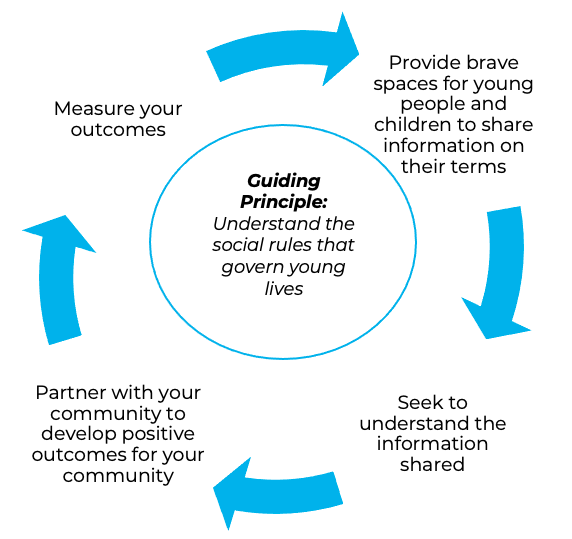
Our Guiding Principle – Understanding the social rules that govern young lives.
This requires a continued cycle of:
- Providing brave spaces for young people and children to share information on their terms
- Seeking to understand the information shared
- Partnering with your community to develop positive outcomes for your community
- Measuring your outcomes
Written by Jason Tait, Director of Pastoral Care and Designated Safeguarding Lead at TASIS The American School in England and Co-Founder of The Student Voice

